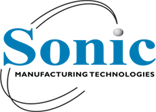
How Sonic is Making PCBs Safer for the Environment
Printed circuit boards (PCBs) are essential components used in electronic devices. However, the PCB manufacturing process involves using various chemicals and materials, some of which may pose a risk to the environment. Some of the materials used in PCBs can contaminate water, soil, and air. These chemicals include lead, mercury, cadmium, and brominated flame retardants.
Furthermore, when PCBs are disposed of in landfills, they can leach into the groundwater and cause contamination. Sonic is working towards changing materials and practices to make PCBs more sustainable and environmentally friendly. As a leader in PCB manufacturing, here are some of the ways we are changing our practices to promote sustainability.
Reducing the Use of Hazardous Chemicals
The first step in making PCBs safer for the environment is to reduce the use of hazardous chemicals. We are moving to alternative chemicals that are less toxic and less harmful to the environment. For instance, lead-free solder can be used instead of lead-based solder.
Recycling and Reusing
Another way to reduce the environmental impact of PCBs is through recycling and reuse. The materials used in the PCB manufacturing process, such as copper and gold, are recovered and reused in other products, reducing the need for new materials and preventing the release of harmful chemicals into the environment.
Safe Handling and Disposal
The safe handling and disposal of PCBs and their by-products are crucial in reducing the environmental impact of PCBs. All waste products generated during the manufacturing process must be treated and disposed of safely. This includes using proper storage containers, labeling and transportation methods.
Green Manufacturing Practices
Green manufacturing practices, such as using renewable energy sources and implementing energy-efficient processes, can substantially reduce the environmental impact of PCB manufacturing. For instance, using solar panels to power the manufacturing process can significantly reduce greenhouse gas emissions.
PCBs are essential components of electronic devices, but their production and disposal pose serious environmental risks. To make PCBs safer for the environment, Sonic Manufacturing Technologies is committed to reducing the use of hazardous chemicals, recycling and reusing materials, implementing safe handling and disposal practices, and adopting green manufacturing practices.
By taking these steps, we can ensure that the production and disposal of PCBs do not harm the environment and human health. To learn more about our commitment to sustainability, contact Sonic Manufacturing Technologies today.
CALL FOR A QUOTE
(510) 580-8500
OR EMAIL:
Sales@Sonicmfg.com
